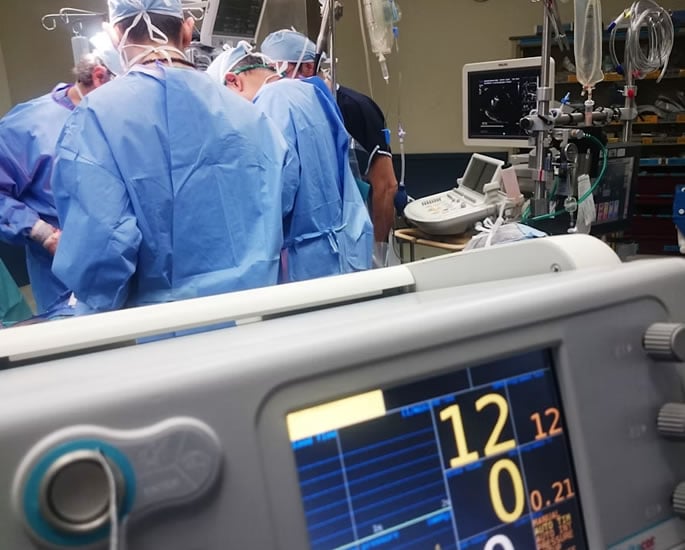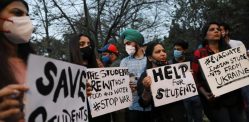"It was as if this was an accepted part of the job"
A landmark survey from the British Medical Association (BMA) has revealed the issue of sexual misconduct and institutional neglect that UK medical students face.
The comprehensive report, based on the experiences of almost 1,000 students, reveals that a shocking number of aspiring doctors are subjected to sexual harassment, assault, and even criminal acts, including rape and drink spiking.
Compounding this trauma is a pervasive culture of institutional neglect, where reports are dismissed, victims are silenced, and perpetrators are shielded from accountability.
This is not simply a series of isolated incidents, but a systemic failure that threatens to embed a toxic culture within the NHS for generations to come.
The findings lay bare the lived experiences of students whose trust has been shattered and whose careers are being shaped by abuse and fear, demanding urgent and radical change.
The Scale of the Problem

The BMA’s findings are a stark indictment of the environment in which future doctors are being trained.
The survey reveals a pervasive culture where sexism is considered a problem in medical education by a staggering 84% of respondents. This belief is rooted in direct, harmful experiences.
The statistics on sexual violence are particularly alarming.
Two in five (41%) female respondents reported having been a target of sexual harassment or sexual assault while at university.
These incidents range from sexually suggestive comments and unwelcome touching to severe criminal offences.
The survey recorded 37 incidents of rape or assault by penetration, 85 cases of sexual assault, 43 instances of drink spiking, and 24 cases of stalking.
The most common forms of harassment included unwelcome touching, hugging, or kissing (65%) and sexually suggestive comments or jokes (62%).
This behaviour is not confined to university campuses.
Medical education uniquely involves compulsory clinical placements within the NHS, exposing students to additional risks.
The survey found that 18% of all respondents had been a target of sexual harassment or assault on a clinical placement.
Once again, female students were disproportionately affected, with 20% experiencing this compared to 6% of their male counterparts.
On placements, the most common incidents were sexually suggestive comments or jokes (78%) and staring or leering (47%).
As one female medical student shared:
“A male patient said, ‘Lucky me, three attractive women down on their knees for me’.”
“We all felt so uncomfortable, and I expected the doctor to say something, but she just laughed awkwardly, and we carried on.
“It was as if this was an accepted part of the job, and it would be rude or unprofessional to call out the inappropriate sexualisation.”
This single testimony captures a critical finding of the report: the normalisation of sexism.
When senior staff fail to challenge such behaviour, it sends a powerful message to students that this is something they must simply endure.
Reporting Failures

Perhaps the most damning findings of the BMA report relate to the profound failures in reporting and safeguarding mechanisms.
The data reveals a deep-seated distrust in the ability of medical schools and universities to handle complaints, a distrust born from bitter experience.
An overwhelming majority of students who experience harassment or assault do not report it: 67% at university and 74% on clinical placement.
The reasons for this silence are multifaceted but point to a system that victims perceive as futile at best and punitive at worst.
The number one reason for not reporting, cited by 76% of students at university and 80% on clinical placement, was the belief that “nothing would be done”.
This cynicism is not unfounded. For the few who did report, 75% said they were ‘not really’ or ‘not at all’ satisfied with the outcome.
This lack of faith is further illustrated by the chilling personal accounts shared with the BMA.
One female student from the South of England described her university’s reaction when she first sought help for sexual harassment by a fellow student:
“When I first went to the university for help, I was told not to report it and to ‘keep it in the family’ – that we keep these things within the medics.”
This “keep it in the family” attitude fosters a toxic culture of secrecy that protects perpetrators and isolates victims.
When this student did eventually report, she felt punished for speaking up, was labelled “unprofessional” and saw no meaningful action taken.
Another student’s story highlights how reporting can be weaponised against the victim.
After being sexually assaulted by another student on a night out, she sought help from a senior staff member:
“When I went to report this… I was told it might reflect poorly on my professionalism if I told the medical school I had been assaulted by another student but refused to reveal their identity.
“There was no way to anonymously report this, and I felt too scared to report it non-anonymously.
“I later ended up in classes with my assaulter because there was no anonymous reporting process.”
The ultimate institutional betrayal comes when universities actively protect their reputation over their students.
One respondent described how their university failed to act decisively, even in the face of repeated offences:
“University allowed a repeated predator who sexually assaulted other students back onto the course. They encouraged victims not to go to the police as it would impact their reputation.”
Such accounts explain why 60% of students surveyed said they did not trust their medical school to handle future incidents adequately.
The system is not just broken; for many, it feels deliberately engineered to protect the institution, leaving vulnerable students to fend for themselves.
Lasting Scars

The impact of sexism and sexual violence extends far beyond the immediate trauma of an incident. It casts a long shadow over a student’s education, career aspirations, and mental health.
Half of all respondents said their experiences had negatively impacted their education. Of this group, 59% said it affected their ability to participate in classes and placements, 45% said it impacted their ability to study, and 43% said it influenced their choice of medical specialty.
The survey uncovered a pattern of “gender-based careers advice”, where students, particularly women, are steered away from certain fields based on sexist stereotypes. Surgery, a male-dominated specialty, was frequently mentioned.
One student recalled being explicitly discouraged from pursuing it:
“I was steered away from surgery and told to consider general practice because it’s more compatible with having children.”
This “benevolent sexism” limits students’ potential and perpetuates gender imbalances within the NHS. It reinforces outdated notions that a woman’s career must be secondary to her presumed future role as a mother.
The toll on students’ health and well-being is immense.
Nearly half of all respondents said their experiences had a negative impact. Of those affected, a devastating 96% reported an impact on their mental health, while nearly half said it damaged their ability to participate in social activities.
The emotional fallout includes panic attacks, PTSD, and the need for therapy.
The sense of isolation can be profound, as one student vividly described:
“I was scared to leave the house or go anywhere alone.
“I was paranoid of everyone and felt sick if anyone touched me. I became very down and socially isolated.”
For some, the experience is so damaging that it makes them question their entire career path.
Another confessed: “I considered leaving medicine altogether.
“That thought scared me because all I ever wanted to do is become a doctor.”
When the environment designed to create healers is instead causing deep, lasting harm, the entire system is in crisis.
A Toxic Culture

Addressing this issue requires a clear understanding of who the perpetrators are.
The BMA’s research shows that the threat comes from multiple sources. The most severe incidents, including rape and sexual assault, were most likely to be perpetrated by other students.
This highlights a failure within university culture itself, challenging the assumption that younger generations are inherently more enlightened about issues of consent.
On clinical placements, the power dynamics shift.
Here, students reported that sexism, harassment, and assault were perpetrated by doctors, patients, and other healthcare staff.
The inherent hierarchy of medicine makes it incredibly difficult for students to challenge senior doctors who have significant power over their educational progress and future careers.
The response from official bodies acknowledges the gravity of the situation.
Dr Emma Runswick, BMA deputy chair of council, stated: “The lack of accountability coupled with the power imbalance for perpetrators, especially when they are senior doctors, can lead to the normalisation of sexist and inappropriate behaviours in the NHS and beyond.”
Dr Becky Cox and Dr Chelcie Jewitt, co-founders of Surviving in Scrubs, added:
“This deeply shocking data shows the appalling scale of sexual violence affecting medical students… medical schools and the NHS are failing to safeguard medical students.”
Danny Mortimer, chief executive of NHS Employers, called the report “bleak and worrying” and committed to working with universities to better protect students.
This chorus of concern is a vital first step, but it must be followed by concrete action.
The BMA’s report is a watershed moment, a definitive and distressing confirmation of what many medical students have known for years.
It is no longer possible to dismiss these experiences as isolated incidents or unfortunate anomalies.
They are symptoms of a systemic cultural sickness within medical education and the NHS, a culture that too often tolerates misogyny, ignores cries for help, and fails in its fundamental duty of care.
The recommendations laid out in the report are clear: universities and the NHS must implement robust and consistent sanctioning policies, create clear and confidential reporting channels, provide specialised support for survivors, and deliver comprehensive education on consent and sexism for all students and staff.
Above all, they must shift the burden from the victims to the institutions, accepting accountability for creating a safe and equitable environment.
The future health of the nation depends on doctors who are trained with respect and integrity, not scarred by trauma and neglect. It is time to heal the healers.






























































